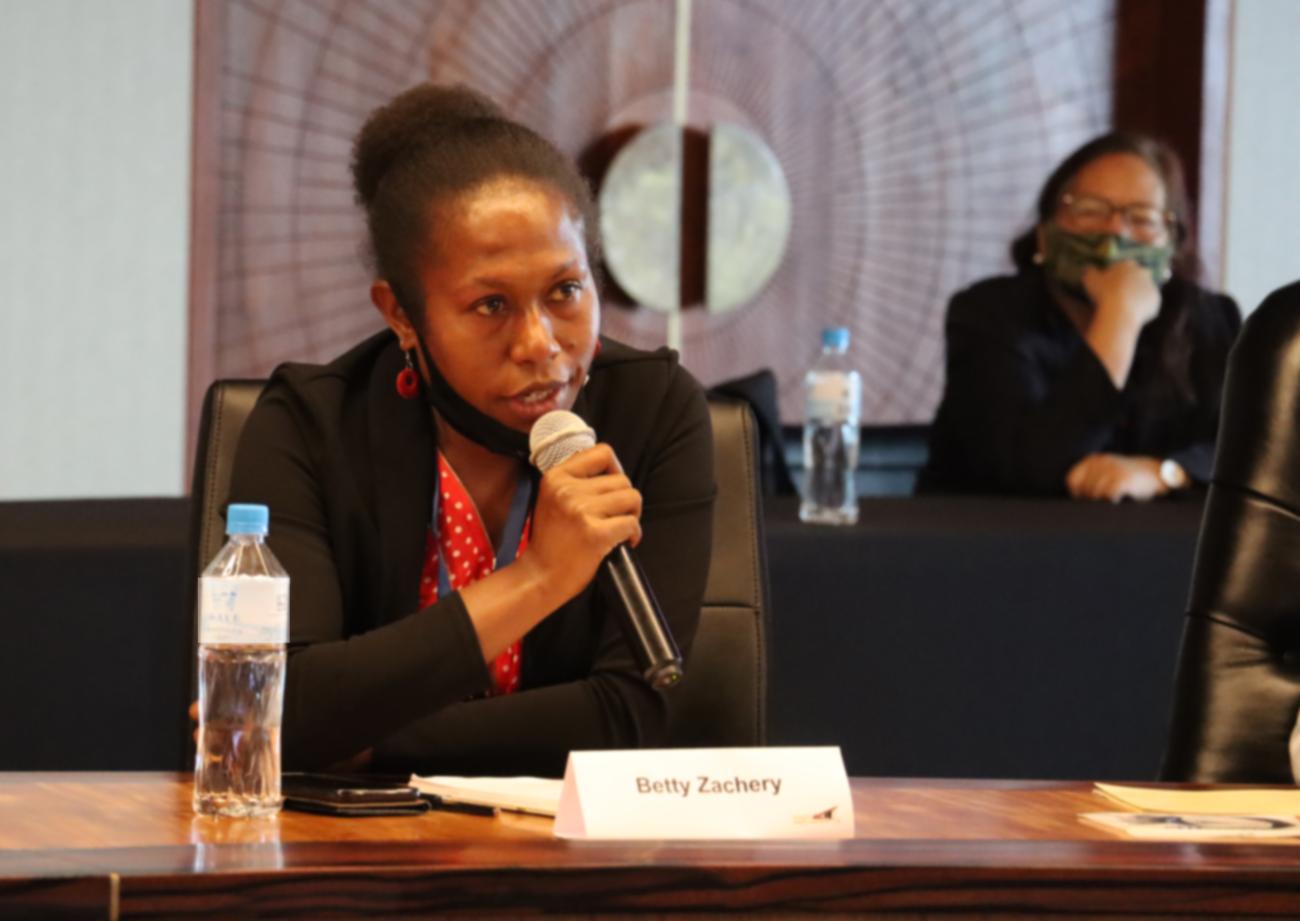Addressing family violence in Eastern Highlands has been a goal of Eastern Highlands Family Voice since the organisation started in 1997. With steady progress, the team has examined the root causes of gender-based and family violence and worked to enhance understanding of this issue that affects men, women, and children across the province.
This understanding starts with defining gender for the traditional and patriarchal communities in which the organisation works.
“When we are trying to address the idea of gender, our cultural values and practices come into play,” says Betty Zachary, a field worker with Eastern Highlands Family Voice. “We cannot just go and say and start talking about gender. We have to see from their perspective to address the issue.”
“Most people don’t know about gender issues but when they actually understand it, then they break through and we see a lot of changes.”
These breakthroughs are the result of dialogue and reflection that build community ownership of the issue of violence.
“We have to start a community conversation. We do surveys and then we try to sensitise the community leaders and volunteers,” says Betty. “We then ask them to go back to their communities and talk to them about the issues raised in their surveys.”
Working with leaders is one way Eastern Highlands Family Voice is utilising traditional structures to introduce new understandings of gender and educate communities on services to support people experiencing violence. And the strategy is working.
Betty tells us that “There is a lot of change. Young people get to know what gender is and gender roles and responsibilities.”
“We go out as field workers but we have counsellors back in the office,” she says. “We tell them about our services and when we are about to leave, they come and grab us and talk to us about their problems. We then ask them to come to the office where we can help them. That’s how we help the survivors of GBV.”
Despite family violence counselling being a relatively new service, it is very welcome. Betty shares that following immediately outreach activities, she meets people who want to use this service.
“Every community you go to you expect five to ten people to address you in face-to-face conversation telling you all about their problems and you know where to refer them,” she says. “The more we go out to the community we see that people are accessing our services. The demand is going up.”
Despite these successes, speaking about conflict resolution and preventing violence in the Highlands of Papua New Guinea is not without challenges. Change, while it is undoubtedly happening, can be slow.
“There is a community which was very, very challenging,” recalls Betty. “I had to stand and talk and they were gambling, playing darts, doing market things, and no one was listening. I was pushing myself through because I believe in what I’m trying to do.”
“This community, last week, did a reconciliation. They told us that now they are changing and they are hoping for more programs to come to the community.”
Community-wide change as evident in that case is vital to breaking the cycle of violence. Intergenerational change will ensure the work of Eastern Highlands Family Voice has a lasting and tangible impact on families into the future. Educating communities on childhood development has proven to be one area where Betty and her colleagues have seen change.
“When you talk about gender and you talk about child development and illiteracy, parents are crying because they are thinking ‘If only I knew this before’ and they feel like it’s too late for their children,” says Betty. “They are now advocating for their younger ones to be different and see things differently.”
As with community leaders sharing awareness of gender-based violence, parents advocating for education builds community ownership of the issue of violence, and of the solutions to prevent and respond to it.
With assistance from the EU-funded Spotlight Initiative, Eastern Highlands Family Voice has received support for outreach and education activities that create sustainable, community-wide change.






